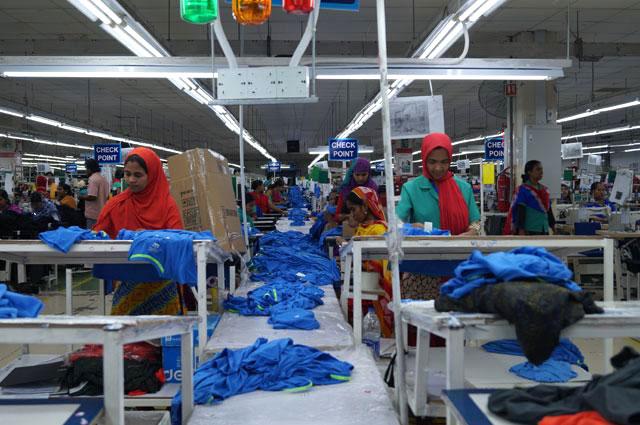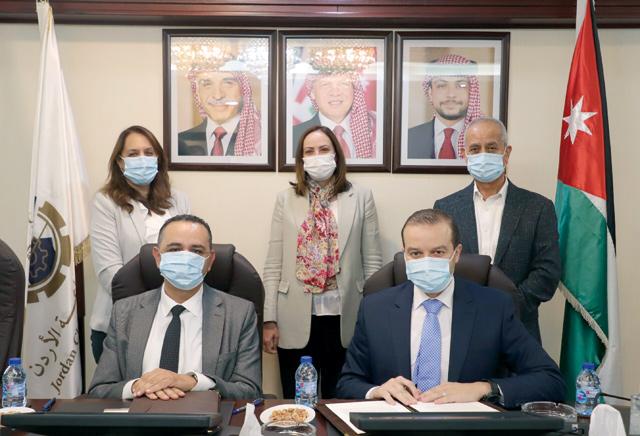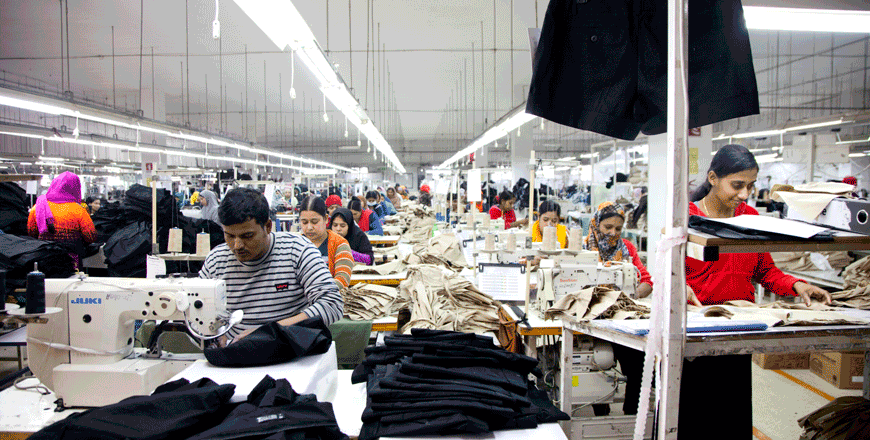You are here
Jordan’s garment sector committed to int’l conventions, decent work conditions — JCI
By JT - Sep 01,2020 - Last updated at Sep 01,2020

The number of workers in the garment sector during the past year exceeded 76,000, recording an increase of 66 per cent compared with the total number in 2010, according to the Jordan Chamber of Industry (JT file photo)
AMMAN — The garment sector in Jordan “has accomplished remarkable achievements and high compliance rates in line with international standards” through cooperation between the Ministry of Labour, the Jordan Chamber of Industry (JCI), the Jordan Garments, Accessories and Textiles Exporters' Association (JGATE) and trade unions, the chamber said in a statement on Monday.
The chamber described an investigation published by the British newspaper The Guardian on the garment sector in Jordan as “showing a great deal of prejudice and highlighting the cons which in fact are individual cases and happen all over the world”.
The investigation is based on the opinion of only one out of 76,000 foreign workers working in the garment sector in Jordan, the statement said.
“This journalistic investigation is far from being an investigation that presents the facts to public opinion, on the contrary, it provides information completely different from the truth and the reality of the situation, which harms the reputation of Jordan, in general, and the Jordanian factories in particular,” read the statement.
The chamber stressed that the investigation was based on a report of the National Work Committee issued in 2006.
The International Labour Organisation's (ILO) Better Work Programme, which works to implement the Jordanian garment sector's compliance with decent work standards since 2008, has shown “many positive indicators” for the Jordanian garment sector in its annual report (Compliance with Better Work Jordan 2020).
The report shows development and high rates of compliance in various aspects of decent work.
In the 2020 report, only two cases were recorded in two out of 94 factories related to forced labour, one was related to forced overtime and the second related to withholding personal documents, which were immediately processed by the ILO and the Ministry of Labour, the JCI statement said.
The chamber stressed that the garment sector in Jordan “is free from any case of physical violence or threat of violence in any of the garment factories”, especially since the recent report of the ILO indicates that Jordan is “one of the most developed countries in terms of compliance with decent work standards in the garment sector, in particular”.
The JCI also underlined that the garment sector has made “distinguished” achievements during the COVID-19 crisis, and that all its workers who wished to return to their countries have been granted all their rights, in full cooperation with the Ministry of Labour and JGATE under the auspices of the embassies of the workers' countries.
The Ministry of Labour has activated a specialised platform for registering foreign workers whose work permits have expired and wish to return to their country.
Once registered and processed, the Ministry of Labour then makes sure that every worker obtains all their financial and non-financial rights, whether from the employer or from the Social Security, the statement continued.
Sponsored by their respective embassies, the workers are then sent home, “therefore there are no violations at the level of foreign workers during the coronavirus pandemic or any forced dismissal of them”, read the statement.
“The defence orders and the Ministry of Labour’s procedures were in the interest of the worker and their rights are guaranteed,” the statement said.
Large garment factories, which have started their work since the beginning of the pandemic, are “fully committed” to implement health measures and procedures to limit and prevent the spread of the coronavirus, the chamber said.
Health measures were implemented under the direct supervision of the National Epidemiological Committee and in cooperation with the Ministry of Labour with continuous inspection campaigns and penalties up to closure in the event of non-compliance with these measures.
“What confirms its total commitment is that no cases were recorded among the Jordanian and non-Jordanian workers in the garment sector in Jordan,” the JCI said.
The number of workers during the past year exceeded 76,000, recording an increase of 66 per cent compared with the total number in 2010, according to the chamber.
The number of Jordanian workers in the sector has reached about 25,000 — approximately one-third of the total employment in the sector — compared with about 8,000 in 2010, meaning that the number of Jordanian workers in the sector increased by more than 120 per cent when compared with 2010 and 2019, the statement said.
Garment exports during the last decade achieved an annual growth rate of 8 per cent, and this rate increased to more than 11 per cent in 2019, doubling the volume of exports to reach about JD1.6 billion in 2019, contributing to 27 per cent of the total national exports, according to the statement.
The sector is considered the largest in terms of export capacity compared with various other productive sectors in the Kingdom.
This is in addition to the volume of added value created by the productive operations of the sector, which amounts to more than JD600 million annually. The sector contributes by 2 per cent of the gross domestic product, concluded the statement.
Related Articles
AMMAN — The Jordan Chamber of Industry (JCI) has signed a memorandum of understanding with Better Work Jordan, a partnership between the Int
AMMAN — Despite progress in compliance and the joint efforts of the government, employers and labour unions for a collaborative garmen
AMMAN — Better Work Jordan, with the support of the European Union (EU) on Thursday concluded an induction workshop on the Ministry of Labou














